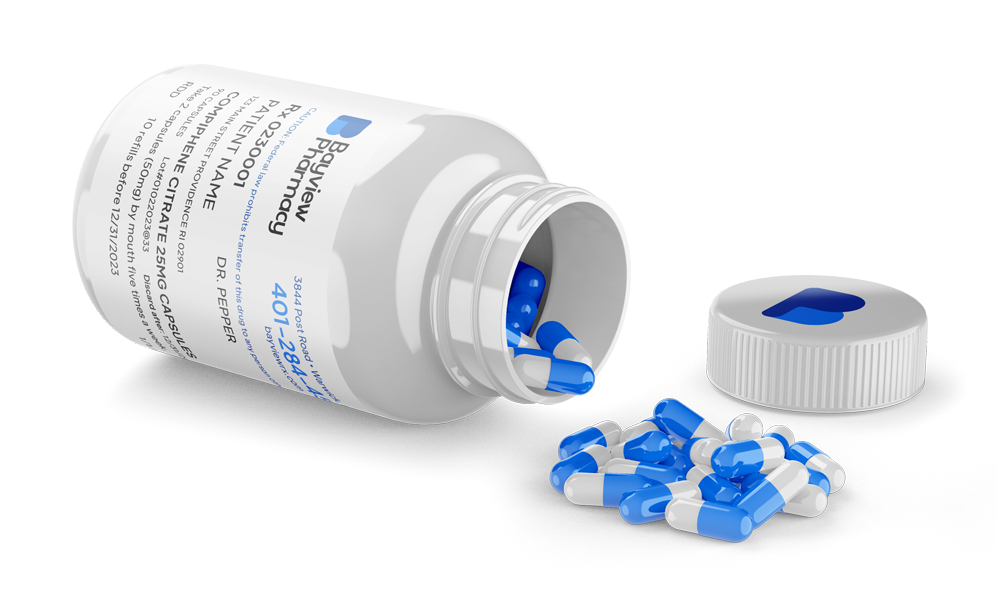Are you struggling with Hypogonadism or low testosterone levels? If so, Clomiphene might be the perfect solution for you. It is an effective medication that stimulates your body to produce more testosterone, which can assist in alleviating any symptoms associated with Hypogonadism. Keep reading to discover how Clomiphene works and whether it may suit you!

What is Clomid, and how does it work in the male body?
Clomiphene, commonly known as Clomid, is a beneficial treatment for male patients looking to improve their reproductive health. By blocking the production of estrogen in the body and tricking testosterone into thinking that there's less than what's present, this fertility drug works like magic! Testosterone production increases significantly, which leads to increased sperm count and better chances at parenthood.
For effective results, Male patients should take Clomiphene under the supervision of their doctor for 3-4 months. Depending on medical advice, dosages may vary according to individual needs. Furthermore, no foods have been found that directly correlate with Clomiphene's effect in males; however, an adequate dietary nutrition plan can help optimize the potency of this medication.

How can Clomiphene help to treat Hypogonadism or low serum testosterone levels in men?
Clomiphene is an effective treatment for males diagnosed with Hypogonadism or having low testosterone levels. By blocking the activity of estrogen at the pituitary gland, Clomiphene encourages the release of FSH and LH hormones which stimulate production in these areas.
Clomiphene and hormones stimulate the testicles, leading to higher testosterone levels. Currently, clomiphene is prescribed off-label to treat infertility in men. Healthcare professionals prescribe this medication for male infertility even though it's not approved for that use by the FDA. It should always be taken under the guidance of a healthcare provider so that progress toward average serum testosterone concentrations is monitored effectively.
What are the potential side effects of Clomiphene treatment in men?
Common side effects of this treatment could include visual disturbances such as blurred vision or light sensitivity, diminished liver function, and decreased alertness due to dizziness or excessive sleepiness. Additionally, you may experience depression and mood swings, skin irritation, itching, chest pain, or heart palpitations.
Before taking Clomiphene, it is essential to speak with a physician - especially for those identifying as male - since they can assess if this medication would be beneficial.

Which males should not take Clomiphene?
Men should be aware that they cannot take clomiphene, and those who may experience an allergic reaction or other health issues due to its ingredients ought to avoid it entirely. Severe reactions can be caused by taking this medication, so caution is of the utmost importance.
Men suffering from liver disease should not take Clomiphene as it may worsen their condition. Furthermore, Clomiphene can cause side effects such as headaches and changes in vision which could be dangerous for those with eye problems like cataracts or glaucoma; hence these individuals are strongly advised against taking the treatment when trying to conceive.
How long does treatment usually last, and what is the success rate of Clomiphene treatment for Hypogonadism or low serum testosterone levels in men?
It is typical to witness tangible results after two months of clomiphene treatment, yet four or six months is the suggested timeframe for optimal benefits. Studies have shown that 80% of participants who utilized this therapy observed improvement in their testosterone levels and accompanying symptoms. Clomiphene offers a high success rate compared to other fertility treatments available today!

In conclusion, Clomiphene has proven to be an excellent way of treating low serum testosterone levels in men. This medication stimulates the pituitary gland, prompting it to release a luteinizing hormone which subsequently boosts the testes' testosterone production. Despite this significant breakthrough in medical science, caution should still be exercised when taking Clomiphene, as it can lead to specific adverse effects if not used properly and responsibly.
It's critical to remember that treatment is not one-size-fits-all, and it may prove unsuccessful for some men. If you're looking into Clomiphene as a possible remedy for Hypogonadism or low serum testosterone levels in male patients, chat with your healthcare provider immediately – and make sure Bayview Pharmacy is at the top of your list when choosing a reliable compounding pharmacy!



%20A%20Complete%20Overview%20Thumbnail.jpg)

